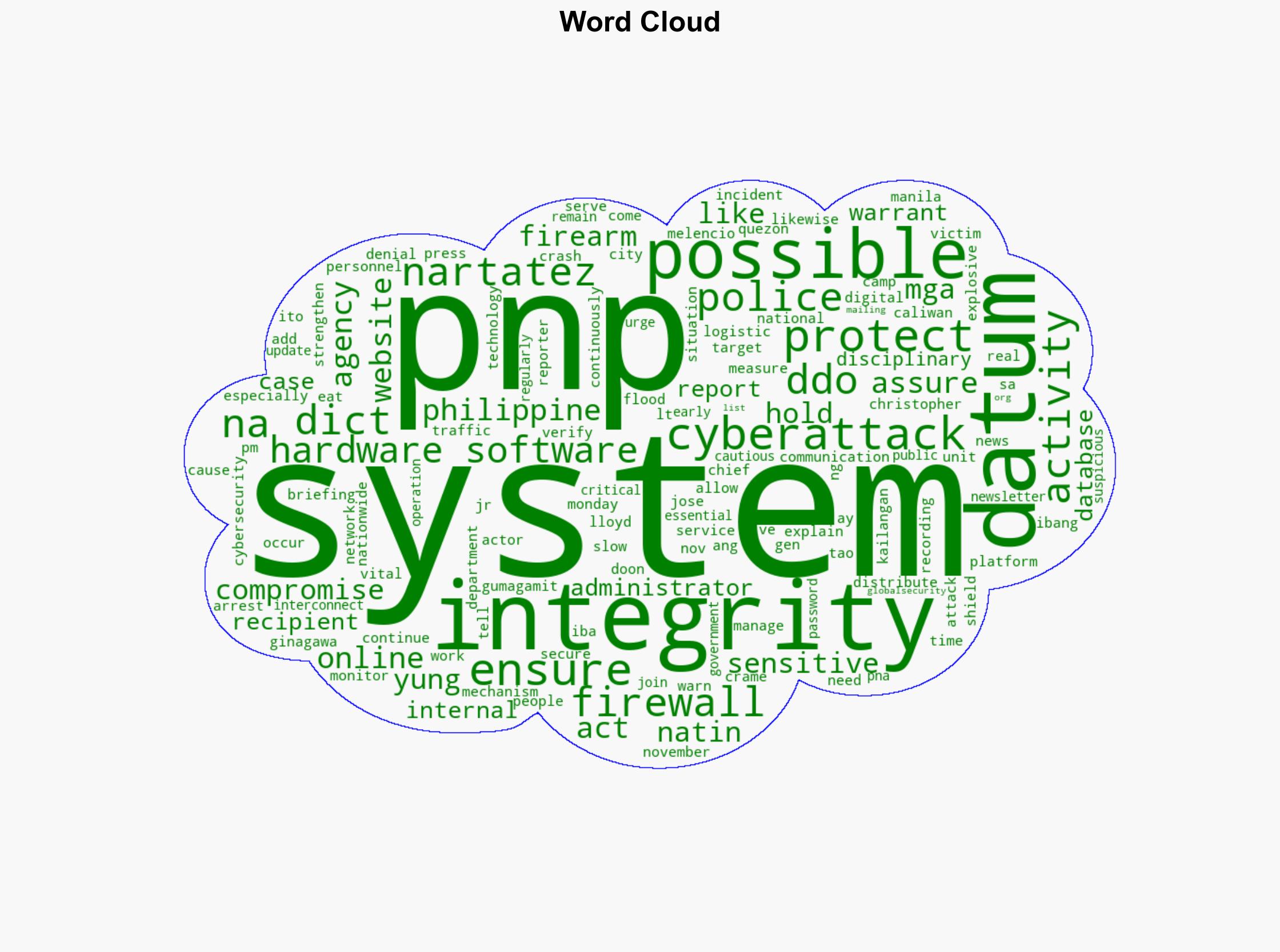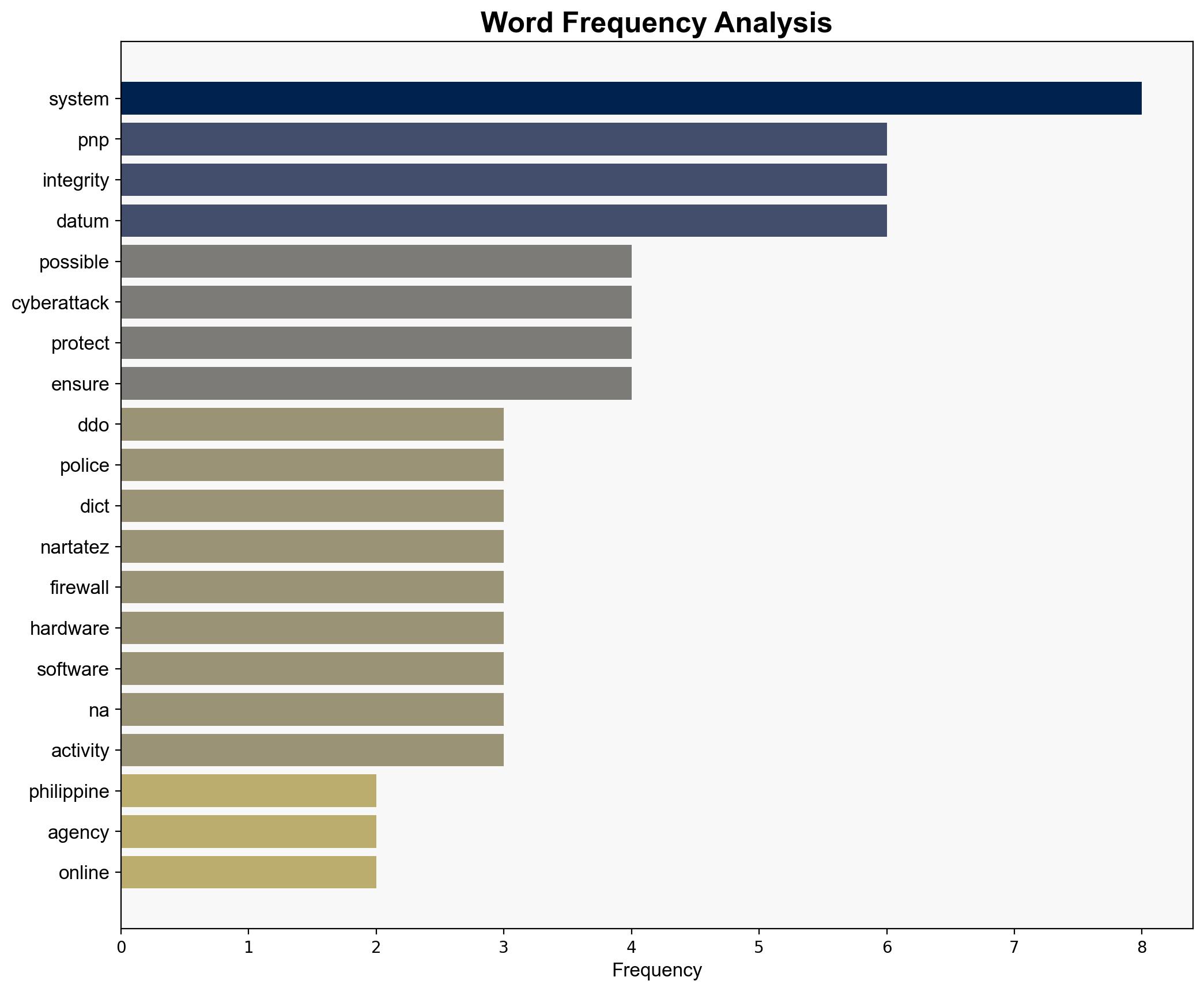PNP ups cybersecurity measures amid possible DDoS cyberattacks – Globalsecurity.org
Published on: 2025-11-04
Intelligence Report: PNP ups cybersecurity measures amid possible DDoS cyberattacks – Globalsecurity.org
1. BLUF (Bottom Line Up Front)
The Philippine National Police (PNP) is enhancing cybersecurity measures in response to potential Distributed Denial of Service (DDoS) attacks. The most supported hypothesis suggests that these measures are a proactive response to credible threats identified by the Department of Communications and Technology (DICT). Confidence level is moderate due to limited specific threat details. Recommended actions include continued monitoring and collaboration with DICT and other agencies to strengthen defenses.
2. Competing Hypotheses
1. **Proactive Defense Hypothesis**: The PNP’s actions are based on credible intelligence from DICT about imminent DDoS attacks targeting critical infrastructure, prompting preemptive strengthening of cybersecurity measures.
2. **Routine Security Enhancement Hypothesis**: The PNP’s measures are part of standard operational procedures, with no specific threat driving the current actions, but rather a general precautionary approach to cybersecurity.
Structured Analytic Techniques (SATs) such as Analysis of Competing Hypotheses (ACH) suggest the Proactive Defense Hypothesis is better supported due to the specific mention of DICT warnings and the detailed measures being implemented.
3. Key Assumptions and Red Flags
– **Assumptions**: The Proactive Defense Hypothesis assumes DICT has reliable intelligence on potential threats. The Routine Security Enhancement Hypothesis assumes no specific threat intelligence is available.
– **Red Flags**: Lack of specific threat details and potential over-reliance on DICT’s threat assessments without independent verification.
– **Blind Spots**: Potential underestimation of insider threats or vulnerabilities within PNP’s own systems.
4. Implications and Strategic Risks
– **Cybersecurity**: Enhanced measures may deter potential attackers but could also signal vulnerabilities, inviting further probing by adversaries.
– **Geopolitical**: Increased cybersecurity focus may reflect broader regional tensions or cyber threats, potentially impacting international relations.
– **Economic**: Successful DDoS attacks could disrupt critical services, affecting economic stability.
– **Psychological**: Public awareness of potential cyber threats may lead to increased anxiety or mistrust in digital systems.
5. Recommendations and Outlook
- Continue collaboration with DICT and other cybersecurity agencies to share intelligence and best practices.
- Conduct regular cybersecurity drills and audits to identify and mitigate vulnerabilities.
- Enhance public communication strategies to manage perceptions and provide reassurances about cybersecurity measures.
- Scenario Projections:
- Best: Successful deterrence of DDoS attacks with no disruptions.
- Worst: Major DDoS attack leading to significant service disruptions and data breaches.
- Most Likely: Minor attempts thwarted, with ongoing vigilance required.
6. Key Individuals and Entities
– Christopher Lloyd Caliwan
– Jose Melencio Nartatez Jr.
– Department of Communications and Technology (DICT)
7. Thematic Tags
national security threats, cybersecurity, counter-terrorism, regional focus





